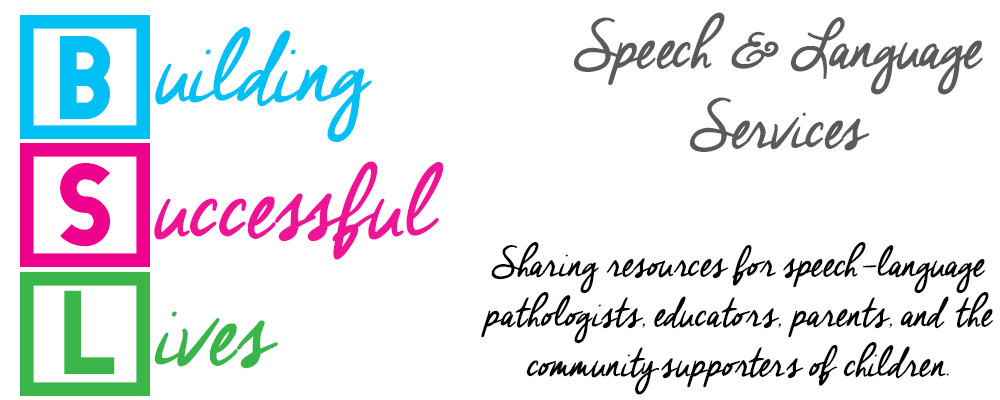If school based SLPs only had to complete evaluations and instruct students during therapy sessions, SLP life would be MUCH easier. However, you may start to feel like a professional juggler once you throw in attending special education eligibility meetings, IEP meetings, re-evaluation meetings, data collection, writing reports, medicaid billing, team meetings, etc. I have discovered 10 helpful tips that will ensure that you are effectively balancing your SLP life as a school based SLP. No, I don't have a magic wand to make your paperwork or computer work disappear. Sorry...so sorry. The good news is that I have 10 success tips that will help you manage the therapy, paperwork, and meeting aspects of your job.
THERAPY TIPS:
1) Gather seasonal/holiday themed materials on Thursdays and Fridays before the season changes or upcoming holiday. Keep them in an accessible place that is near your therapy table.
*Fiction/non-fiction books (with companions/related activities)
*Speech-language activities from Teachers Pay Teachers (TPT)
*Speech-language activities from Teachers Pay Teachers (TPT)
*Token boards (fall, winter, spring, summer, holidays)
*Game boards
*Sports games (football, basketball, soccer, baseball)
*Seasonal worksheets for mixed articulation/language goals
*iPad activities
2) Vary activities in monthly sessions to maintain engagement.
Students can sense when you are not interested or excited about an activity. It's okay to switch activities from one that you initially planned on using that day. Remember to try your best to make sessions meaningful, educationally relevant, yet fun!
PAPERWORK TIPS:
3) Use progress monitoring forms for articulation, speech fluency, and language objectives.
* Store master copies in a binder near therapy table.
* Put forms in students' group therapy folder so that you can easily
use them on data collection days (e.g. I organize attendance
sheets, data sheets, therapy printables in folders per group).
* Remember that you do NOT have to take therapy data in every
session!
4) Schedule time to write IEPs and evaluation reports.
It will hold you accountable with getting paperwork done with less stress. If you didn't get to complete what you planned, just scratch it out in your planner and re-assign it to another day's task list.
5) Arrive to work early or stay late to complete documentation.
I think it's important to set boundaries between SLP work life and personal life. I recommend that you avoid bringing home student files, IEP work, evaluation reports, or medicaid billing.
If you have children, you may try arranging for extended childcare
hours 2 days a week so that you can arrive early or stay late at work to complete documentation. You may be surprised how a slight adjustment will improve your efficiency.
hours 2 days a week so that you can arrive early or stay late at work to complete documentation. You may be surprised how a slight adjustment will improve your efficiency.
EVALUATION & MEETING TIPS:
6) Schedule daily tasks in your planner.
Write down meeting dates and times. Note changes to usual schedule such as testing student vs. typical therapy session.
7) Schedule time for lunch (social meeting).
I think that it is important to give yourself at least 30 minutes that does not involve you eating at your desk while checking emails or doing other paperwork.
8) Schedule time to test students for upcoming speech/language screenings, comprehensive evaluations, and re-evaluations.
Contact SLP testers in your district if they are available to help lighten your testing load.
9) Learn to politely say no.
I know that you may want to help serve as a team member on special school projects, committees, and clubs. However, you most likely don't have time to attend these extra meetings. It's perfectly ok to say no without feeling guilty.
Instead, you can attend after school events (e.g. concerts, literacy night) to support your students and build rapport with families when you can.
10) Request to be excused from some meetings.
With parental permission, you can be excused from IEP meetings. Since SLPs typically have high caseloads and often must cancel therapy sessions to attend meetings, it is appropriate to be excused from attending an IEP meeting. However, you should always use your professional judgement when asking to be excused. This will need to be documented in the IEP online documentation or meeting minutes. It is best to send home speech therapy updates and proposed goals & objectives in advance when possible.
Check out my TPT store for time-saving theme based activities and progress monitoring tools. These resources are engaging therapy materials and will simplify the data collection process with your students!
Thanks for reading the blog. These tips help me tremendously during the school year. I'm now in the final stretch of the school year, but first it's time for SPRING BREAK!
Tamara Anderson

